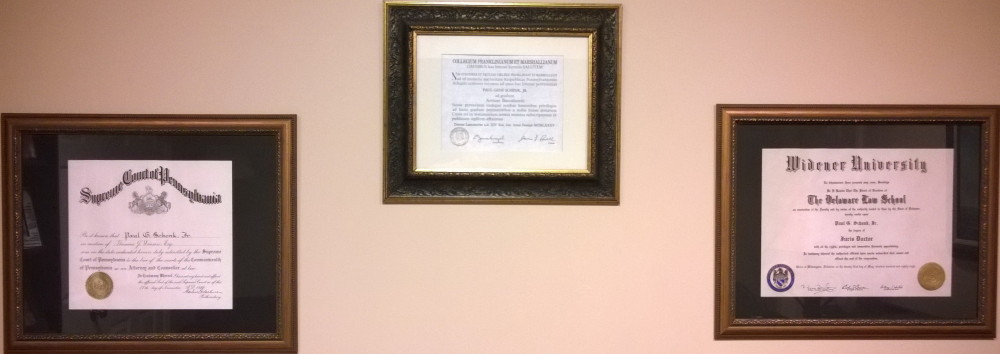THE FOLLOWING LEGAL STUDY ARTICLE POSTING IS INTENDED TO SUPPORT AWARENESS AND UNDERSTANDING. IT IS ONLY A PRELIMINARY LEVEL LEGAL STUDY ARTICLE AND IT IS NOT LEGAL ADVICE. IF THE READER SEEKS LEGAL ADVICE CONCERNING HIS OR HER PARTICULAR SITUATION, HE OR SHE SHOULD SEEK OUT AN ATTORNEY IN A LAWYER CLIENT RELATIONSHIP.
School board members have a duty to make sure that a good faith, careful, reasonable , impartial, searching , detailed, systematic, examinative, investigative, and probing inquiry or study has been conducted, without any self dealing , prior to the exercise of their discretion .
A school board transcends the legal limits of its discretion when it makes a decision in ignorance due to lack of inquiry into facts necessary to form an intelligent judgment.
The process leading up to the actual exercise of discretion by a school board cannot be unending. So long as there is a long and deliberative process before arriving at a decision, there is no requirement that the process be further drawn out until every scrap of data of any possible relevance has been fully considered.
A. School board members must fulfill their duties intelligently, impartially and with sound discretion. They must investigate, inquire, study, ponder and then finally decide the question in order to properly exercise their lawfully mandated discretion. School boards act outside the limit of their authorized discretion when they make decisions in ignorance due to lack of inquiry into the facts necessary to make an intelligent judgment.
A board must act intelligently, impartially and with sound discretion Smith v. Darby School District, 388 Pa. 301, 314, 130 A.2d 661, 669 (1957). A board is required to investigate, to inquire, to study, to ponder and to finally decide the question, i.e., to exercise its lawfully mandated discretion. Allen v. Uniontown Area School District,4 Pa.Commw. 183, 188, 285 A.2d 543, 546 (1971). A board transcends the legal limits of its discretion when it makes a decision in ignorance due to lack of inquiry into facts necessary to form an intelligent judgment. Zebra v. Pittsburgh School District, 449 Pa. 432, 296 A.2d 748 (1972).
B. The process leading up to the actual exercise of discretion by a school board cannot be unending. So long as there is a long and deliberative process before arriving at a decision, there is no requirement that the process be further drawn out until every scrap of data of any possible relevance has been fully considered.
This process leading up to the actual exercise of discretion cannot be unending. …There must be a time after which a board is entitled to arrive at a decision and thereafter enter into an executory stage, without being stymied at every turn by the differences of opinions of others. Allen v. Uniontown Area School District,4 Pa.Commw. 183, 188, 285 A.2d 543, 546 (1971). So long as there is a long and deliberative process before arriving at its decision, there is no requirement that the process be further drawn out until every scrap of data of any possible relevance has been fully considered by the Board : Borough of Clifton Heights v. School District of Township of Upper Darby, 31 Pa.Commw. 523, 529, 377 A.2d 836, 839 (1977).
C. To investigate a matter is to make a systematic or searching inquiry, a detailed examination, or an official probe into that matter.
Black’s Law Dictionary defines the term `investigate’ as follows: `1. To inquire into (a matter) systematically; to make (a suspect) the subject of a criminal inquiry. . . . 2. To make an official inquiry. . . .’ Black’s Law Dictionary 902 (9th ed.2009). Webster’s Third New International Dictionary defines the term `investigation’ as follows: `1: the action or process of investigating: detailed examination. . . 2. a searching inquiry:. . . an official probe. . . .’ Webster’s Third New International Dictionary 1189 (2002). Therefore, we conclude that, as used in Section 708(b)(17), the term `investigation’ means a systematic or searching inquiry, a detailed examination, or an official probe. Department of Health v. Office of Open Records, 4 A.3d 803, 810-811 (Pa.Cmwlth. 2010). See Sherry v. Radnor Tp. School District .20 A.3d 515 (2011).
To See A Categorically Listed Archive Of Preliminary Legal Study Based Article Posts , See The Drop Down Box On This Page Or Click https://studypostlex.com/categorizedarchive/
